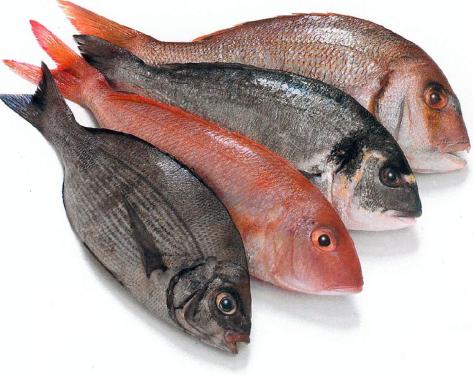Old MacDonald’s farm did NOT have a fish here nor there!!!
There has been a lot of talk about industrially raised beef versus grass-fed cows, but what is also getting some press recently is farm-raised fish. Overfishing has been an issue in some areas, and these farms have been popping up to help with the shortage of fish as well as to control the supply. Is this really a good thing, though?
First let’s look at practices – how could someone actually farm fish? Well, this is usually done with cages in the ocean, lakes, ponds and even rivers. There have been some concerns that when any living thing is forced to live and grow unnaturally that there are consequences. It is the same with fish. When these fish are raised in such close quarters, they are said to be “so confined that they’re essentially stewing in their own feces,” says Don Coleman, 42, from Berkeley, Calif., a volunteer from the nonprofit Friends of the River.
As well as often being fed an unnatural diet of…any guesses? Soy and corn! “But wait,” you may be thinking, “I don’t think fish eat corn…I’ve never seen corn growing in the ocean!” Sadly that is often a large part of what they’re being fed because government subsidies make corn and soy cheap.
Just as with cows who are fed an unnatural diet and kept in unnaturally close quarters, these fish have chronically suppressed immune systems, and therefore are sick often. Industrial farming has treatments for symptoms, not corrections for causes. They also have antibiotics and pesticides to keep the fish alive long enough to reach market size. Then they are shipped off to restaurants and grocery stores, and end up feeding your children. Keep in mind: when you eat sick things, you get sick.
So how do you navigate these murky waters when dining on seafood? There are a few things to remember that will help you make informed and healthy decisions for you and your family:
- Always avoid farmed salmon and shrimp unless they are organically farmed.
- Also avoid wild Atlantic salmon – but wild Alaskan salmon is great!
- Not all farmed fish are raised inhumanely, nor do they all produce sick fish. Certain types are grown inland; with enough room to be healthy, tilapia (for example) is a fish that is farmed but still okay to eat.
- Watch out for big fish such as albacore tuna and swordfish – they usually contain bio-accumulated mercury.
Want more info? Here are two great guides that you can print out to put in your wallet or purse, showing you exactly what types of fish are good, just okay, and bad for you and the environment.

